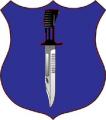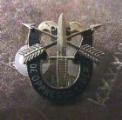(Taken from a Hybrid Warfare thread: http://council.smallwarsjournal.com/...?t=7360&page=2 and a post by Bill Moore (No.37).
I am mindful of a number of recent threads that try to "look forward over the horizon", notably the thread on the Deterrence of Irregular Threats. We have looked at human terrain, language skills, CIMIC, developing informants and lots more. Elsewhere open source intelligence is touted. I understand this need has been looked at within "The Beltway".I'm not a fan of hybrid warfare....we all recall more than one senior officer during OIF saying "no-one told me about this threat"....What we really need to invest in is a better crystal ball.
This thread is at a more strategic level - for Small Wars - how can 'a better crystal ball' be developed and invested in? What is a better crystal ball?















Bookmarks